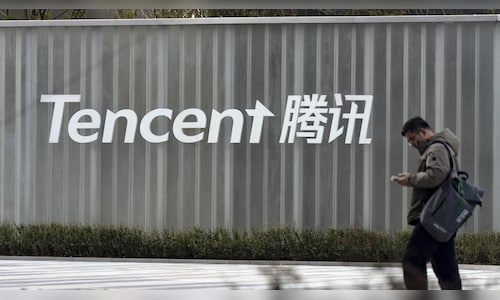Shares of Tencent Music Entertainment Group, listed in Hong Kong, along with smaller competitor NetEase Cloud Music Inc., have surged over 100% since the close of 2023, outperforming many other Chinese internet companies. This growth is attributed to their focus on monetizing loyal users while expanding podcast and live event offerings.
Tencent Music has achieved four consecutive quarters of growth in revenue per paying user by successfully encouraging subscribers to transition to more expensive plans. This marks a refreshing shift from the ongoing headlines of aggressive price reductions for EVs and e-commerce, which have resulted in substantial volatility within Chinese tech stocks in recent years.
“Music is increasingly integral to the lives of young people in China, and they won’t just switch platforms for a small saving,” commented Ivan Su, an analyst at Morningstar Inc. “The monthly subscription — about the same price as a cup of coffee — is quite reasonable.”
The online music sector in China has undergone significant consolidation lately, leaving Tencent Holdings Ltd. and NetEase Inc. in a near-duopoly. Spotify remains inaccessible in China due to a firewall.
As of the end of March, Tencent Music led the market with around 555 million monthly active users, with approximately 22% being paid subscribers. In contrast, Spotify’s paid penetration rate is close to 40%.
A key part of Tencent Music’s monetization strategy is its Super Premium VIP tier, where users pay approximately $4 per month for exclusive content and early access to special merchandise and live events. A basic monthly subscription costs around $2.
Goldman Sachs Group Inc. analysts, including Lincoln Kong, noted in a recent report that the proportion of premium members among all paying users could increase to 19% in 2027 from 12% this year. The bank also anticipates 10% growth in average revenue per paid user for this year, with high-single-digit growth expected from 2026 onward.
Similar to Spotify, Tencent Music is exploring additional services. This month, it revealed plans to acquire Chinese podcasting startup Ximalaya, and in May, it announced its investment in South Korean K-pop agency SM Entertainment Co.
“There are various innovative methods for leading players to monetize their users, all of which are quite affordable in the current environment,” stated Agnes Ng, a portfolio specialist at T. Rowe Price Group Inc. “With only two dominant players in the market, competition is mild, and market share remains stable.”
According to Su from Morningstar, NetEase Cloud’s shares have performed well as it “became profitable much sooner than expected.” Conversely, Tencent Music boasts a “far more extensive content library,” reaching a wider audience.
The notable gains in this subsector have made the stocks relatively more expensive. Tencent Music shares are trading at 21 times future earnings estimates, surpassing their three-year average but remaining well below Spotify’s nearly 60 times. NetEase Cloud Music is trading at 24 times.
Valuations for Tencent Music “still appear appealing, especially when compared to Spotify,” noted Kevin Net, head of Asian equities at Financiere de L Echiquier. “Investors appreciate its 70%+ market share in an under-penetrated market, with opportunities for price increases.”
Read Also: Microsoft-backed Mistral unveils multilingual reasoning model to rival OpenAI, DeepSeek



